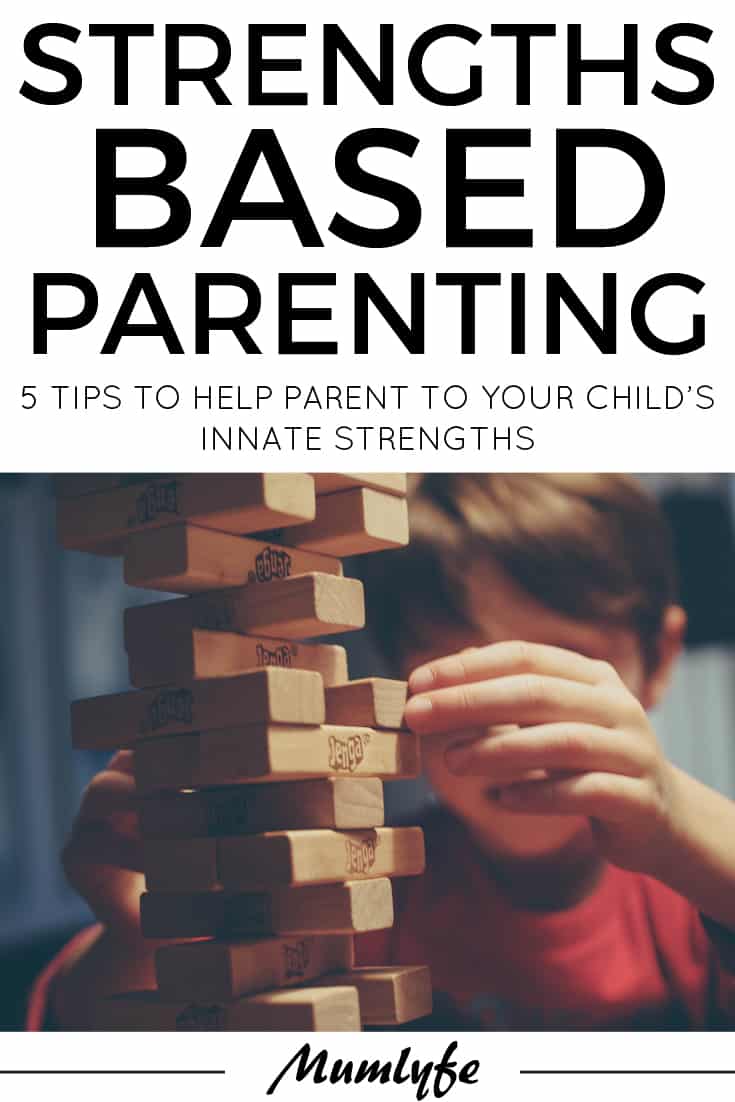These strengths-based parenting tips should set you up to create a parenting environment that nurtures your child’s innate qualities.
Rather than trying to improve the things we see as “faults” (my child doesn’t like sport, my child isn’t good enough at Maths, my child isn’t friendly enough, etc), let’s instead pull the focus towards building up the things they are naturally good at.
It’s no surprise to learn that these also tend to be the things they like too.
Read this too: Strengths- based Parenting: Focus on the cans, not the can’ts
5 strengths-based parenting tips to try
1. Know your child’s strengths
It might seem a bit obvious, but do you really know what your child is good at? What they love to do? Dr Mary Reckmeyer, author of Strengths Based Parenting: Developing your children’s innate talents, recommends looking at four key indicators: yearnings (things your child is drawn to); rapid learning (things they are quick to pick up); satisfaction (things that energise and fulfill); timelessness (things that bring a sense of flow).
Check out the Gallup Institute’s Strengths Explorer (for kids aged 10-14).

2. Help your child get to know their strengths
We can reframe our child’s negative thinking (we all tend to focus on our weaknesses), by highlighting a positive. For instance, when Arabella was getting upset that she wasn’t doing well at school because she wasn’t good at Science, I reminded her that she was a very conscientious person and she would soon figure it out. When Lottie was upset that she didn’t do well in the 100 metres race at school, I reminded her how well she does over long distances because she’s the kind of person who really digs in and sticks at something.
“Instead of trying to minimise a weakness… maximise a strength,” says Dr Lea Waters, author of The Strength Switch.
Remember, strengths can be quite ‘broad’ things: creativity, kindness, analytical skills, calmness, fortitude, friendliness, etc.
For kids: the Gallup Strengths Explorer workbook.

3. Allow them space to work things out
“The average time an adult waits to respond after being asked a question by a child is an amazing nine-tenths of a second. That’s nothing,” Dr Reckmeyer says. “My rule is a three-second rule: triple the amount of time you wait to hear what a child is thinking.”
Step back, listen to what your child has to say, then ask, “What do you think?” This is at the heart of this style of parenting and really should be at the top of this strengths based parenting tips list! *What do you think?*
How does your child think something should be handled? What strengths do they have that they can tackle an issue with?
4. Sit with ‘weakness’
It’s so tempting to want to “fix” the things our children struggle with, but that’s not what this is all about. Their natural tendencies are what we are working with here. If you can’t possibly live with the idea that they will not perform well at something (especially a school something), try to work with your child’s strengths to improve their weaknesses. For example, if they are struggling with a subject at school, try to find the parallels with that subject and subjects they do well at. Try to adjust your thinking to allow weaknesses to ‘just be’, rather than focus all your child’s energy on fixing them.

5. Build on strengths
Once you know your child’s strengths, you can find ways to build on them. For example, if one of your child’s strengths is that they are social and energetic, match these qualities up with a fast-paced team sport. If their strengths are that they are observant and self-contained, a sport like chess or cricket might suit them better. Remember though, if they are not loving any sport at all, that’s okay too. Offer lots of alternatives, then provide plenty of unstructured time for your child to explore the kinds of things they like to do.
Do you find it easier to focus on strengths, rather than faults?
Feature image by by Ben Collins; volleyball by Vince Fleming; Jenga by Michał Parzuchowski ; singer by Tommy Munoz




Helping your child overcome perfectionism | Mumlyfe
Monday 3rd of June 2019
[…] lessons in strengths-based parenting 5 strengths-based parenting tips to focus on the good Strengths-based parenting: Focus on the cans, not the […]
3 important things thriving families do - Mumlyfe
Thursday 31st of May 2018
[…] […]
Jen
Monday 28th of May 2018
Hi Bron, Great article! Our eldest is in year 12 and I wish I had learnt about strength based parenting when she was in primary school. Nonetheless, we have made these changes for our youngest and the results are really paying off. Last year he was so very focused on the negative, he would come home from school in a terrible mood. This year things have changed for the better, and I would say this is a combination of resilience and also an increase in self-esteem and self worth. We have stuck with some sport but have added in another activity which he seems to be loving. Its away from his regular school friends. it's his own. It's so lovely to see. Unfortunately I have tried to get some strength based talks to happen at our school, but haven't had much luck - as of yet.
Maxabella
Monday 28th of May 2018
That is so good to hear, Jen. I think SB is taking off, but it's still a bit under the radar. It's actually quite hard to get something new into schools because they have their own learning programs that they have 'bought into' (for want of a better word). Best to both your kids and I hope the positivity continues.